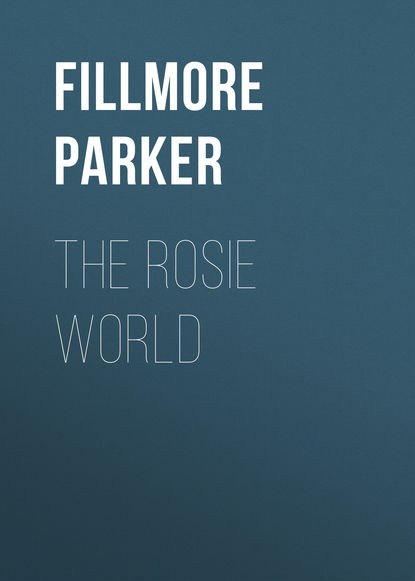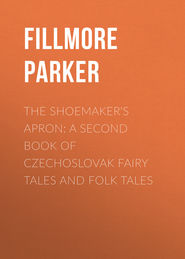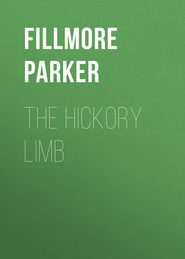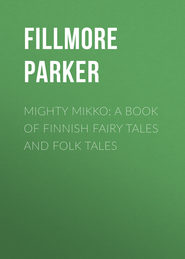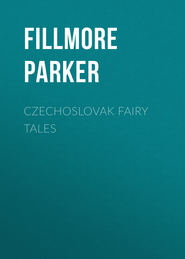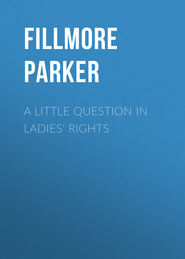По всем вопросам обращайтесь на: info@litportal.ru
(©) 2003-2024.
✖
The Rosie World
Настройки чтения
Размер шрифта
Высота строк
Поля
"At you, do you say, Rosie? Well, now, I don't see how any one could get awful mad at you."
Rosie's patience was about exhausted, but she restrained herself. "But, Dad, if I was to do something awful bad – steal ten dollars, or run away from home!"
Jamie looked at Rosie, then at the sky line, then at the soap-box, then back at Rosie. Surely now a brutal threat was coming.
"Why, Rosie dear, I don't think you'd ever do anything like that!"
Huh! What kind of an answer was that for a father to give his child? Rosie straightened her back, and without another word departed. She felt that her worst fears were justified. Any man as difficult to trap as Jamie O'Brien was a dangerous character.
She nursed her resentment the rest of the evening. Just before she went to sleep, however, she decided, as a matter of scrupulous justice, to suspend final judgment until she should have seen for herself that damning evidence of his brutality, namely, the scar on her poor mother's right shoulder. Yes, she would find some excuse for seeing it at once.
The next morning, while her mother was preparing to go to market, of itself the opportunity came.
"Rosie dear," Mrs. O'Brien called down from upstairs, "I need your help. One of me corset strings is busted."
Rosie found her mother seated at the bureau, half dressed, fanning herself with a towel. A full expanse of neck and shoulders was exposed, so that Rosie, busied at her mother's back, was able to scan minutely all that there was to scan. She looked and looked again, and by patting her mother affectionately, was able to add the testimony of touch to that of sight.
In due time her mother departed, and Rosie, left alone, turned to the mirror and gazed into it several moments without speaking.
"Well!" she said at last. "What do you know about that!"
She shook her head at the round-eyed person in the mirror, and the round-eyed person nodded back, as deeply impressed with the inexplicability of things as Rosie herself.
CHAPTER XVI
WHAT EVERY LADY WANTS
All morning Rosie moved about the house preoccupied and silent, heaving an occasional sigh, murmuring an occasional "Huh!"
At dinner she paid scant attention to her mother's market adventures, and with difficulty heard Terry's orders concerning a new paper customer. Her mind was too fully occupied with a problem of its own to be interested in anything else.
On the whole it was a strange problem, and one that, after hours of thought, remained unsolved. By mid-afternoon Rosie was ready to cast it from her in disgust but she found that she could not. Like a bad conscience, it stayed with her, dogging her steps even on her paper route.
It had the effect of colouring everything that she saw or heard. When she handed a paper to Mrs. Donovan, the policeman's wife, who exclaimed: "What do you think of the beautiful new hammock that Mr. Donovan has just gave me?" Rosie remarked in a tone that was almost sarcastic: "Oh, ain't you lucky!" and to herself she added cynically: "And I'd like to know who gave you that black-and-blue spot on your arm!"
She found one of the Misses Grey pale and haggard under the strain of a hot-weather headache. Rosie forced her unwilling tongue to some expression of sympathy; but, once on her way, she told her disgruntled self that what she had wanted to say was: "Well, Miss Grey, I must say, if I didn't know you was an old maid, I'd ha' taken you for a happy married woman!"
Near the end of the route, she found old Danny Agin waiting, as usual, for his paper. His little blue eyes twinkled Rosie a welcome, and his jolly cracked voice called out: "How are you today, Rosie?"
For a moment Rosie gazed at him without speaking. Then she shook her head, and sighed.
"You look all right, Danny Agin, just as kind and nice as can be, but I guess Mis' Agin knows a few things about you!"
Danny blinked his eyes several times in quick succession. "What's this ye're sayin', Rosie?"
"Oh, nuthin'. I was only saying what a nice day it was. Good-bye."
Rosie started resolutely away, then paused. She really wanted some one with whom to talk out her perplexity, and here was Danny Agin, a man of sound sense and quick sympathy, and her own sworn friend and ally.
Rosie turned back and, seating herself on the porch step at Danny's feet, looked up into Danny's face.
"What's troublin' you, Rosie dear?" Danny's tone was kind and invited confidence.
Rosie shook her head gloomily. "Danny, I'm just so mixed up that I don't know where I'm at. You know Janet McFadden? Well – "
Rosie took a long breath and, beginning at the beginning, gave Danny a full account of yesterday's discussion. She brought her story down to that very morning when her mother had called her upstairs to tie the broken corset string. At this point she paused and sighed, then looked at Danny long and searchingly.
"And, Danny, listen here: There wasn't any scar at all! I hunted over every scrap of both shoulders and I felt 'em, too, and they were just as round and smooth as a fat baby! And she said: 'A foot long at least and two fingers deep.' And she even said it itched in rainy weather! Now what do you know about that?"
Danny slowly shook out the folds of a large red handkerchief, dropped it over his head and face, and bowed himself as though in prayer. No sound came from behind the handkerchief, but Danny's body began to shake convulsively. Either he was sobbing, or —
"Danny Agin, are you laughing?"
Danny slowly raised his head and, drawing off the handkerchief, began wiping his eyes.
"Laughin', is it? Why, it's weepin' I am! Don't you see the tears?"
Rosie looked at him doubtfully. "I don't see what you're weeping about."
Danny shook his head mournfully. "It's a way I have, Rosie. A thought came over me while we was talkin' and off I went. And – and here it comes again!"
Danny reached for his handkerchief, but too late. The thought seemed to hit him full in the stomach, and back he fell into his chair, rolling and spluttering.
"Danny Agin, you are laughing!"
Danny wiped his eyes again. "Perhaps I am this time, Rosie. I'm took different at different times."
Rosie frowned on him severely. "Well, I think you were laughing the first time and you needn't deny it. And, what's more, I don't see anything to laugh at."
"Whisht now, darlint, and I'll tell you. I'll talk to you like man to man. 'Twas thought of the ladies."
"What ladies?"
"All o' them. They're all the same."
"Who are all the same?"
"The ladies, Rosie. Janet and your ma, and the rest o' them!"
"Danny, I don't see how you can say that. Ma and Janet are not a bit the same. They're exactly different. There's ma who's got a kind husband, and she goes telling that he chases her with a butcher-knife, and there's Janet whose father is a drunken brute, and she goes pretending he's the best ever."
"Precisely, Rosie. You couldn't have expressed it better. Now you'll understand me when I tell you that they all want the same thing, which is this: They want to be beat, and they don't want to be beat. Now let me say it to you again, Rosie: They want to be beat, and they don't want to be beat. There!"
Rosie put her hands to her head in distraction. "Danny Agin, I don't know what you're talking about!"
"I'm talkin' about the ladies."
"Well, then, what I want to know is this: How can they want a thing when they don't want it?"





